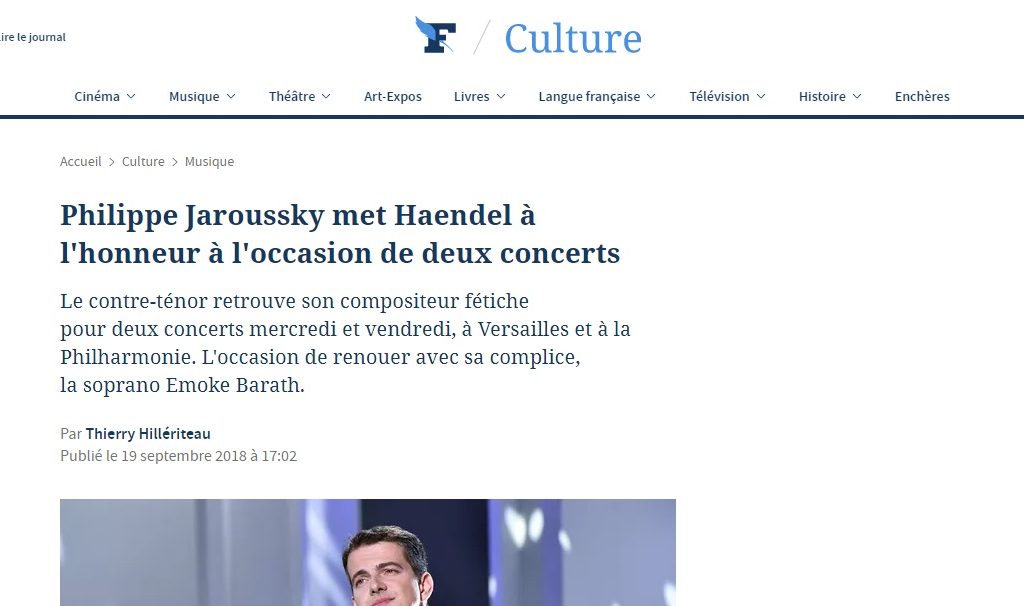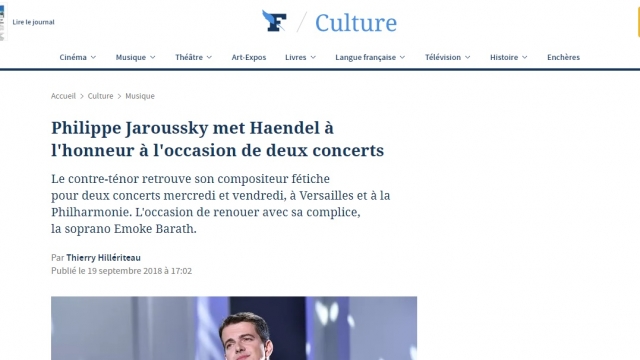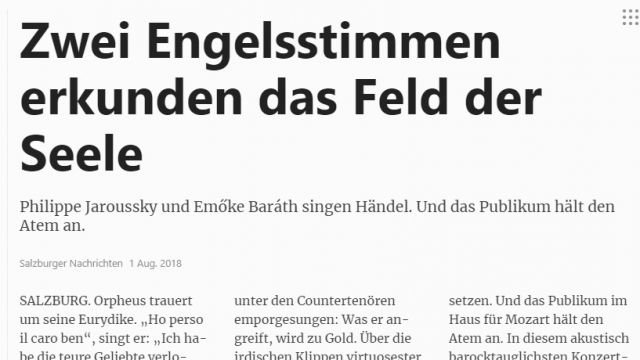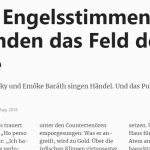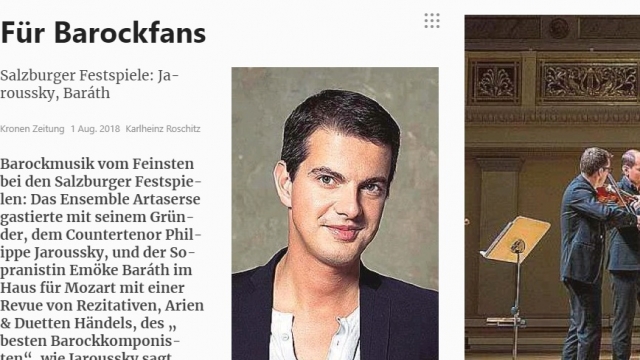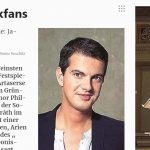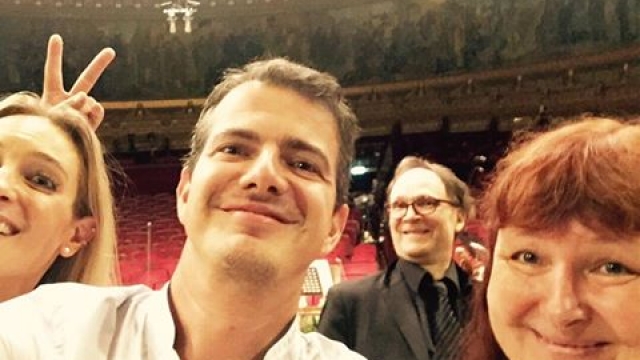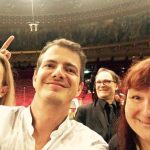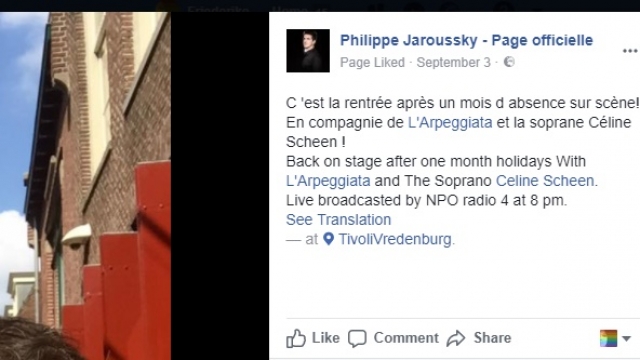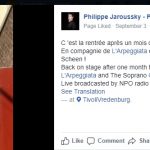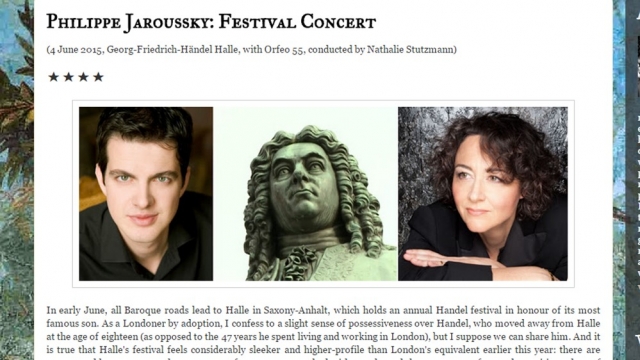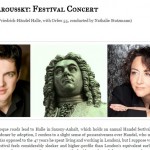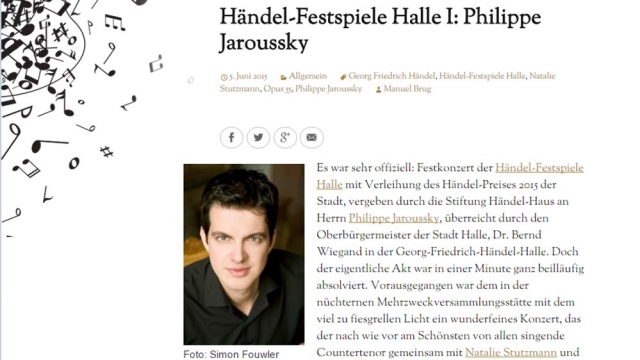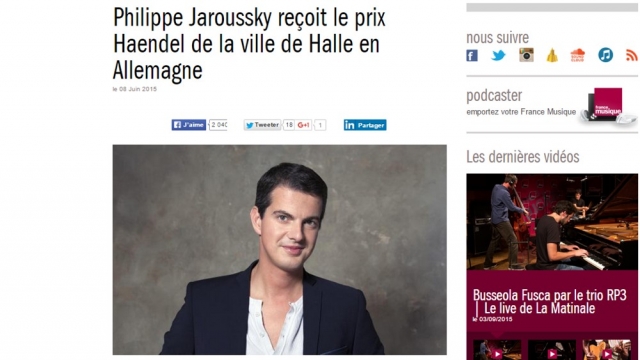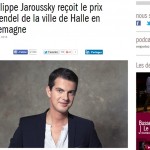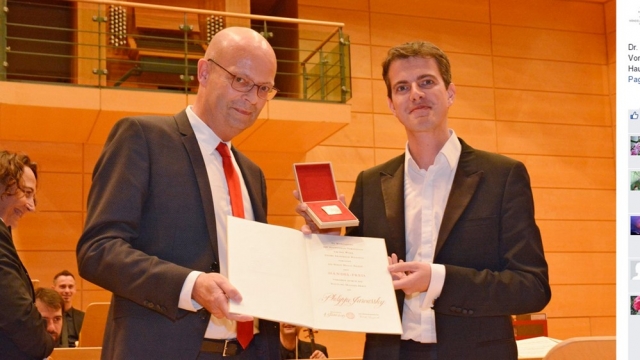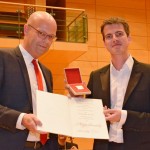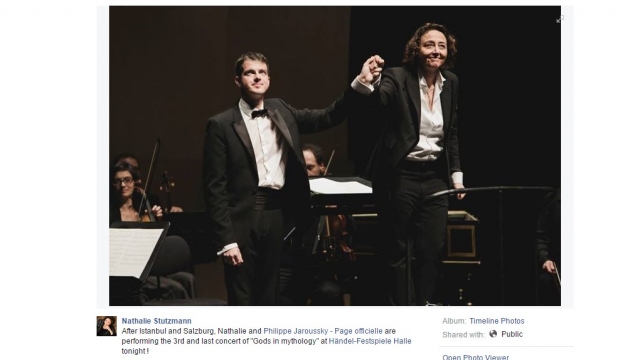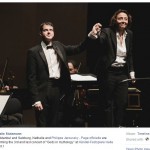2018-08-01, Kronen Zeitung, by Karlheinz Roschitz
In Salzburg traten Jaroussky, die ungarische Sopranistin Emöke Barath und das Ensemble Artaserse mit einer Nummernrevue aus acht Opern Händels an, wobei das Dramma per musica “Ariodante” von 1735 im Mittelpunkt stand.
Souverän beherrschen Jaroussky und Baráth die Kunst, erzählende Rezitative und Arien und Duette, in denen Emotionen ausgedrückt werden, mit großer Intensität darzustellen.
[…] Für Barockmusikfans ein Fest!
Source/Read more: [x]
Translation to English
This is a fan translation; no infringement of copyright is intended. We believe it fulfills the criteria for “fair use,” discussion and study. Translation by *L
For Fans Of Baroque Music
Baroque music at its finest at the Salzburg Festival: together with its founder, countertenor Philippe Jaroussky, and the soprano Emöke Baráth, the Ensemble Artaserse gave a guest performance at the “Haus für Mozart.” Comprising the program was a revue of recitatives, arias and duets by Handel – the “best composer of Baroque music”, according to Jaroussky.
Philippe Jaroussky is among the most brilliant countertenors of the international Early Music scene. A vocal virtuoso, a vocal acrobat, but also a master when it comes to the representation of the Baroque world of emotions! And finally, a favorite with the audiences, celebrated everywhere with cheers, bravos and ovations – just like at the Haus für Mozart in Salzburg.
In 2002, Jaroussky founded the period instrument ensemble Artaserse – the name refers to the opera of the same name. With alternating line-ups, it is especially devoted to the the works of Antonio Vivaldi and Georg Friedrich Handel.
In Salzburg, Jaroussky, the Hungarian soprano Emöke Baráth, and the Ensemble Artaserse performed a revue comprising eight operas by Handel, with the Dramma per musica “Ariodante” from 1735 at its center.
Jaroussky and Baráth supremely master the art of portraying narrative recitatives as well as emotional arias and duets with great intensity.
Their performances of the arias are technically flawless, with ornate coloratura and adornments. Raffinement and finest nuances succeed in filling vocal bravurá with incredible tension. Moreover, the singers grant Händel the characteristic plethora of emotions,moods, and affects: love, cheers of joy, jealousy, rage, suffering and hopelessness. The duets of love and farewell they stage as if they were dramatic conflicts, fought by vocal means.
Framed by sections from Handel’s Concerto Grosso op. 6, which Artaserse’s musicians play with swinging elegance, the audience was treated to recitatives and arias from the operas “Lotario”, “Almira, Queen of Castile”, “Sesto”, “Rodelinda, Queen of the Lombards “,”Caesar in Egypt”, “Scipione” and the serenade” Parnasso in festa.” A celebration for fans of Baroque music!
Source/Read more: [x]
